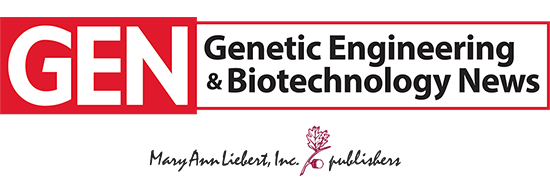By Jonathan D. Grinstein, PhD
Lu Zhang started her first company, Acetone, a medical device company focused on non-invasive technology for the early diagnosis of Type 2 diabetes, when she was just 21 years old. A year earlier, in 2010, she had left Inner Mongolia for the United States to pursue a degree in materials science research at Stanford. Zhang sold Acetone to Boston Scientific in late 2013, and, with majority ownership, she received a hefty chunk of change that would pave the way for her personal investment portfolio.
“I started to make some personal investments with my capital and built a 13-company portfolio, four of which made IPOs,” Zhang told GEN Edge. “So, in 2014, I was thinking about what’s next for me and doing all this angel investing. In early 2015, I made a decision: I wanted to launch my fund.”
At the time, Zhang said that very few people were investing in and talking about healthcare deep tech, which is what ultimately drove her to start her venture capital (VC) firm in 2015 called NewGen Capital, now named Fusion Fund. In 2017, Zhang published an industry research report for the JP Morgan Healthcare Conference, proactively calling for people to invest more resources, capital, and talent into AI-driven healthcare. Today, she’s excited about the blossoming fields of generative AI, large language models (LLMs), and more in healthcare.
“The trend is really coming along—people realize that the largest industrial opportunity is within healthcare, and the next frontier might be within biology with digital biology,” said Zhang, who retains her Mongolian accent, something she points out because she takes pride in her journey as a first-generation immigrant.
Based out of Palo Alto, Zhang’s Fusion Fund currently invests in more than 80 technology startups in healthcare and life sciences, network AI, and industry automation in North America and has notably backed SpaceX and Lyft. The Healthcare and Life Sciences portfolio features 20 companies, including Element Biosciences, some of which are co-investments with larger VCs, such as Khosla Ventures, which Zhang said is also “pretty bullish on AI healthcare.” Other healthcare and life sciences investments from Fusion Fund include single-cell technology innovator Mission Bio, competitor Paradromics in the Neuralink space, biotech startup Quantapore, which is developing nanopore-based nucleic acid sequencing technology, and digital health startup Huma, which is utilizing generative AI.
Early bird gets the worm
Zhang has focused Fusion Fund on supporting early-stage companies, which stems from her conversations with founders about how to be helpful and supportive as a VC. She kept hearing that the critical point for many comes at the very beginning.
“That’s an opportunity to fundamentally do something different and also build a slightly different team to help founders, especially a technical founder,” said Zhang. “The best way to change something is to do it from scratch and brand new. So, we have capital in the initial investing fund at the earliest stage, before the seed stage, and then we continue to have capital in the A and B rounds and even later to support the founder along the way.”
“For the majority of the companies we work with,” Zhang continued, “we are the ones to help get some initial market validation and raise an official institutional seed round to build up a solid revenue pipeline. That’s the stage where we invest the most.”
Looking back, Zhang acknowledges that she benefited from some “beginner’s luck.” For example, it was for a company with a valuation of $4 million—today, that company makes $1.7 billion in revenue. The second investment in Fusion Fund I was an initial check for $5 million to a company now a major player in single-cell sequencing for cancer diagnostics. To date, Fusion Fund has raised $215.5M across three funds, their latest being Fusion Fund III, announced on Nov 1, 2021, and raised $120 million.
At the core of her vision is resiliency, which is essential in today’s market environment, which she said is like a trampoline—bouncing up and down daily.
“There’s always discussion about the great company established during an economic downturn, and that’s true for a reason: the only people who could survive this economic cycle and be able to attract concentrated capital and concentrated resources will grow much faster after the market rebound,” she said.
AI is a tool, not a solution
Fusion Fund primarily invests in platform technologies that utilize data to drive digital transformations.
“There are so many people talking about AI right now, but AI is essentially a tool,” said Zhang. “It’s a tool that will be implemented and used in different industries for different use cases. But why are we using this tool? We’re using this tool, together with other new technology, to push and boost digital transformation across different industries, including healthcare as a major one. So, we are looking for founders with similar convictions and a big vision about what they want to do with their technology solution.”
From there, Zhang said the founders she invests in need to understand market size and timing. They need strong industry insight and the ability to identify core problems to build an applicable solution.
“All these new terms we hear about now, including AI—they’re not new; they’ve been there for many years,” said Zhang. “The reason we should invest in them now is because market timing is here. Whether from the technology infrastructure level or the customer’s copy side, they’re ready to implement new technology. So, when the timing is right, we’ll be able to find the right people to use the right technology and focus on the right industry problem.”
Though Zhang wants to see the implementation of AI and LLMs impact the healthcare and life sciences industries, she thinks it all depends on the accessibility, uniqueness, and quality of the data it uses for training and execution.
“Digital healthcare, digital life science, digital biology, digital therapeutics—it’s just evolving so fast, and it’s not directly consumer-facing, so people don’t feel it right now,” said Zhang. “But in a few years, we will see something significant happen. The future of biology will fundamentally change our day-to-day lives, the food industry, the healthcare industry, and more.”
While the AI revolution has often been compared to the internet boom of the 1990s, Zhang said that the internet is only about the tech industry and that the reason that AI will be so transformational is that it is going to affect companies across all industries.
“It’s important for every single person and company to understand how important AI is and also be prepared to enable themselves with the knowledge and access to the technology,” said Zhang. “We won’t be replaced, but AI technologies will be used by humans. AI won’t replace the doctor who uses it, but it will replace others in a hospital or large organization that uses AI to offer digital and individualized healthcare solutions. This is the evolution we’re going through right now.”



